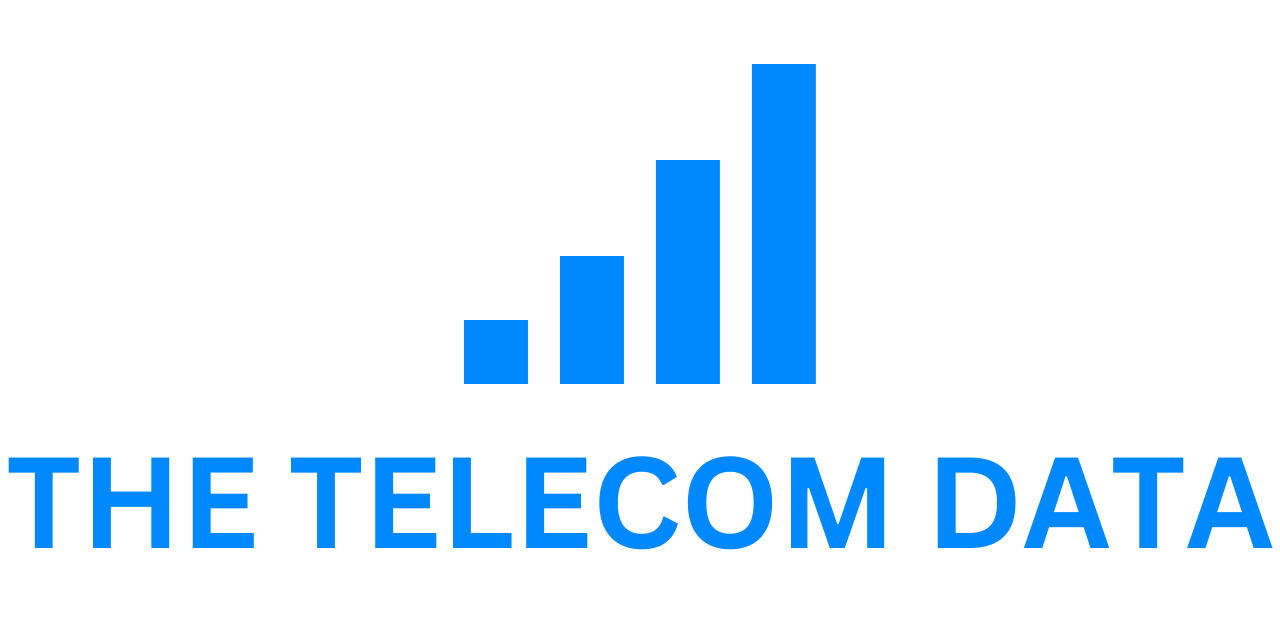The” The Global Request for 6G Dispatches Bias and Accoutrements 2024- 2044″ report has been added to ResearchAndMarkets.com’s immolation.
The Global Request for 6G Dispatches Bias and Accoutrements 2024- 2044 provides a comprehensive analysis of 6G wireless communication technologies and requests.
The 6G request is poised for massive growth over the coming decade, driven by the need for ultra-fast and high-capacity wireless connectivity. 6G networks are anticipated to succeed the current 5G technology by 2030, bringing theoretical peak pets of 1 Tbps compared to 20 Gbps for 5G.
Since the deployment of 1G networks in the 1980s, each generation of wireless communication has brought massive hops in speed, quiescence and connectivity. 6G is anticipated to continue this progression with peak data rates up to 1 Terabit per second( 1 Tbps), sub 1- millisecond quiescence and the capability to contemporaneously connect over 100 billion bias.
crucial motorists for 6G include connecting the Internet of Everything, enabling high-dedication immersive extended reality, vehicle-to-everything ( V2X) communication for independent driving, and extremely thick wireless connectivity for smart metropolises.
The report analyzes 6G’s transformative impact across telecom, automotive, manufacturing, healthcare, and other sectors. In-depth technology assessment covers 6G diapason, network infrastructures, tackle, accouterments like graphene and reconfigurable intelligent shells, security, artificial intelligence, and other inventions. 38 company biographies dissect the 6G development, hookups, and IP geography.
Compared to 5G, 6G aims to give
10 to 50 times advanced data rates
10 to 100 times further connected bias
trustability
100 content far and wide
Report contents include
elaboration from 1G to 6G
5G limitations and 6G benefits
6G advanced accoutrements and recent tackle
6G request outlook, motorists and challenges
G operations, crucial topographies, players
G government enterprise, roadmap, sustainability
G diapason, bias, services
THz communication technologies
6G network infrastructures
Global 6G armature generalities
6G radio system,non-terrestrial networks
Internet of effects, edge computing, AI/ ML
Accoutrements and Technologies
Phase array antennas and modules
Packaging, inorganic composites, rudiments
Organic composites, semiconductor accouterments
CMOS, SiGe, GaAs, InP for 6G
Reconfigurable intelligent shells
Metamaterials, low-loss accoutrements
Cell-free Massive MIMO, graphene
Thermal operation, photoactive accoutrements
request vaticinations 2024- 2040
6G request profit forecasts
A base station and RIS pipe forecasts
Pricing vaticinations for RIS penstocks
38 Company Biographies. Companies penciled in include Apple, Ericsson, LG Electronics, META, Nokia, NTT Corporation, Samsung, and SK Telecomm.
crucial motifs Covered
1 exploration METHODOLOGY
2 Administrative SUMMARY
From 1G to 6G
elaboration from 5G Networks
Limitations with 5G
Benefits of 6G
Advanced accoutrements in 6G
Recent tackle developments
Current request
request outlook for 6G
Proliferation in Consumer Technology
Industrial and Enterprise Transformation
profitable Competitiveness
Sustainability and Addition
request motorists
request challenges and backups
operations
Connected Autonomous Vehicle Systems
Coming Generation Artificial Robotization
Healthcare results
Immersive Extended Reality Experiences
crucial geographical requests for 6G
North America
Asia Pacific
Europe
Main request players
6G systems, by country
Global 6G government enterprise
6G tackle roadmap
geek analysis
Sustainability in 6G
3 preface
6G diapason
operations of 6G
6G bias and structure
6G services
crucial technologies for THz communication
6G networks
SAGIN- Space- air-ground integrated networks
Aquatic
Key Technologies
AI-powered 6G networks
Global armature generalities for 6G networks
Cell-Free Massive MIMO
Integrated Space and Terrestrial Networks
AI- Defined Networking
Energy Harvesting Grids
Visible Light Communication
Quantum Chines
Internet ofBio-Nano effects
Terahertz Mesh Networks
AI- Optimized Topologies
THz wireless
Holographic beamforming
Intelligent reflecting shells
TeraHertz modification
Visible light seeing
Quantum communication
Bio-computing networks
Blockchain
6G Radio system
Overview
Millimeter- surge( mmWave) dispatches
THz dispatches
optic wireless dispatches
Bandwidth and Modulation
Power consumption
6GNon-terrestrial networks
Overview
marketable conditioning
Internet of effects( IoT)
Smart metropolises
Smart radio surroundings
Smart Healthcare
Smart grid
Smart Transportation
Smart manufactories
Smart husbandry
Edge computing
Artificial intelligence and machine literacy
4 MATERIALS AND TECHNOLOGIES
Phased array antennas
Overview
Antenna types
Phase array modules
Overview
Commercial and evidence- of- generalities
Packaging technologies
Overview
Antenna packages
Inorganic composites
Overview
Accouterments
rudiments
Overview
Accouterments
Organic composites
Overview
Accouterments
Semiconductor bias and accoutrements
Semiconductor technologies for 6G
CMOS
CMOS technology- Bulk vs SOI
RF CMOS technology
CMOS and mongrel lll- V CMOS approaches sub-THz
6G CMOS design
PD- SOI CMOS and SiGe BiCMOS for 6G
SiGe
RF SiGe technology
GaAs and GaN
InP
Si vs III- V semiconductors
crucial Differences
Semiconductor technology choices for THz RF
crucial THz Technologies
Challenges
Reconfigurable intelligent shells( RIS)
Overview
operations in 6G
Semi-passive and active RIS accouterments and factors
tackle
Metamaterials and Metasurfaces
Liquid demitasse polymers( LCP) for RIS
Beam operation
Companies
geek analysis
Metamaterials
Overview
operations10.2.1 Reconfigurable antennas
Wireless seeing
Wi-Fi/ Bluetooth
5G and 6G Metasurfaces for Wireless Dispatches
Hypersurfaces
Active material patterning
optic ENX metamaterials
Metamaterials for RIS
Liquid demitasse polymers
Companies
geek analysis
Low- loss accoutrements
Overview
6G low- loss accoutrements
Companies
geek analysis
Cell-Free Massive MIMO4.12.1 Overview
4.12.2 Cellular mMIMO, network mMIMO, and cell-free MMO
4.13 Fiber optics
4.13.1 Overview
4.13.2 Materials and Applications in 6G
4.14 Graphene and 2D materials
4.14.1 Overview
4.14.2 Applications
4.14.2.1 Supercapacitors, LiC and pseudocapacitors
4.14.2.2 Graphene transistors
4.14.2.3 Graphene THz device structures
4.15 Thermal management
4.15.1 Overview
4.15.2 Thermal materials and structures for 6G
4.15.3 companies
4.15.4 SWOT analysis
4.16 Smart EM devices
4.16.1 Overview
4.17 Photoactive materials
4.17.1 Overview
4.17.2 Applications in 6G
4.18 Silicon carbide
4.18.1 Overview
4.18.2 Applications in 6G
4.19 Phase-Change Materials
4.19.1 Overview
4.19.2 Applications in 6G
4.20 Vanadium dioxide
4.20.1 Overview
4.20.2 Applications in 6G
4.21 Micro-mechanics, MEMS and Microfluidics
4.21.1 Overview
4.21.2 Applications in 6G
4.22 Beyond communications markets and applications
4.22.1 THz Sensing
4.22.2 THz Imaging
5 GLOBAL MARKET FORECASTS FOR 6G, 2024-2044
5.1 Market revenues
5.2 Base stations
5.3 RIS tiles
5.3.1 Pricing forecasts
5.3.2 By square meter
5.3.3 By revenues







